Brand promotion and recognition continue to be a significant part of a company’s success and will likely continue to be one for the foreseeable future. A great way to make your site, advertising, and packaging stand out is to utilize the latest design trends to your advantage.
One of the most popular trends right now is line art.
Line art design has been growing in popularity over the past few years. You’ve likely seen line art designs on Instagram and Pinterest, Esty shops, and business cards or logos.
With line art, the personalized charm of illustration and attention-grabbing elements of design come together. Lines, after all, are at the heart of everything an artist creates.
This form of art has been exploding in popularity lately, and it goes beyond the lines that a photographer or artist creates with lighting and shading to create something totally different. An authentic line art design doesn’t typically include flashy elements or very intricate pieces and layers. Line art typically embraces minimalism and strips designs down to just their basic parts that define their overall shape.
And while these designs can seem quite simple, achieving a pleasing outcome is challenging unless you know what you’re doing. Understanding how to get the viewer’s eyes to fill in the blanks is crucial with line art and a significant part of its appeal. It can say and evoke so much with so little.
This article will discuss what line art is, the five essential types of line art, when to use it, the benefits of using it, and finally, how to get incredible line art from the Flocksy team of custom illustrators.
Let’s dive in.
What is Custom Line Art?
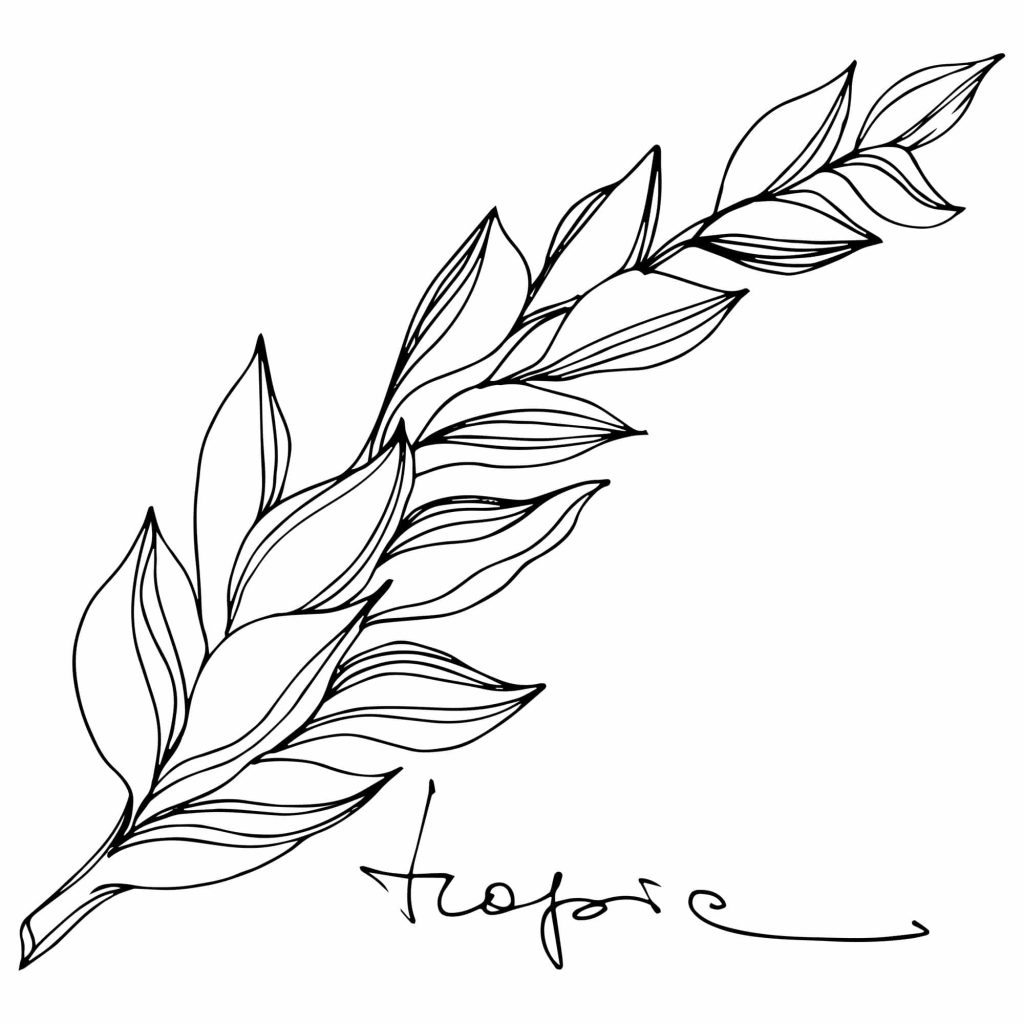
Line art is an illustration style that uses simple lines and curves as well as their negative space to create a piece of art that typically resembles something- a figure, a persona, a shape, etc.
In most cases, these line designs feature continuous lines and white space in a monochromatic color palette. Line art artists usually avoid shading and excessive detail because these pieces look best when they embrace simplicity. The negative space created with the lines is as important as the lines themselves.
In the beginning, line art was just one or two lines on a solid background with a few twists or turns that created a shape. But over the years, the art form has gotten more varied and unique.
Modern line art often showcases unique uses of color, creative character illustrations, and even three-dimensional elements. These features can take custom line art to the next level. As one of the biggest design trends of 2022, line artists have learned to employ the most essential elements of art to craft meaningful, eye-catching, and explanative designs for consumers and businesses alike. From human figures to natural elements to abstract objects, lines can be used to create any number of beautiful designs.
When you think of lines, your mind probably goes to the concept of a straight line connecting two points, but there are several types of lines that artists use to create their work. What’s more, the way they use lines to evoke specific thoughts or emotions can surprise you with their complexity.
5 Types of Line Art
There are different types of line art, several, in fact. Here, we’ll cover some of the most common types and how they’re used in design. You’ll likely be surprised by how expressive a single line can be.
Curved Lines
Curved lines in this art form swoop, change direction, and bend. You’ll see both tight spirals and looser curves, and you’ll see waves. Curved line art often helps the viewer to feel a sense of ease and fluidity. They can be used to create romantic line art that reminds viewers of the human body- up close and far away- and natural shapes. Tight spirals often create a sense of energy and bounce like springs and curls.
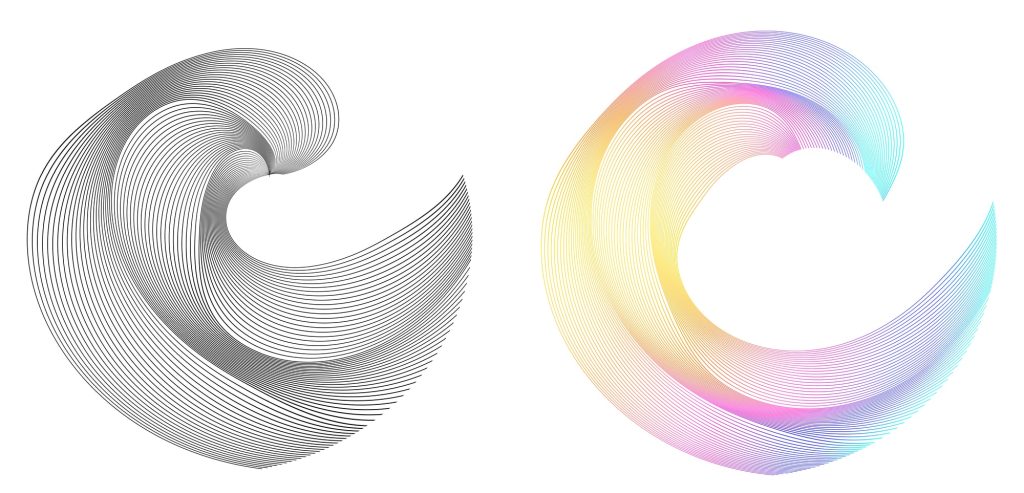
Diagonal Lines
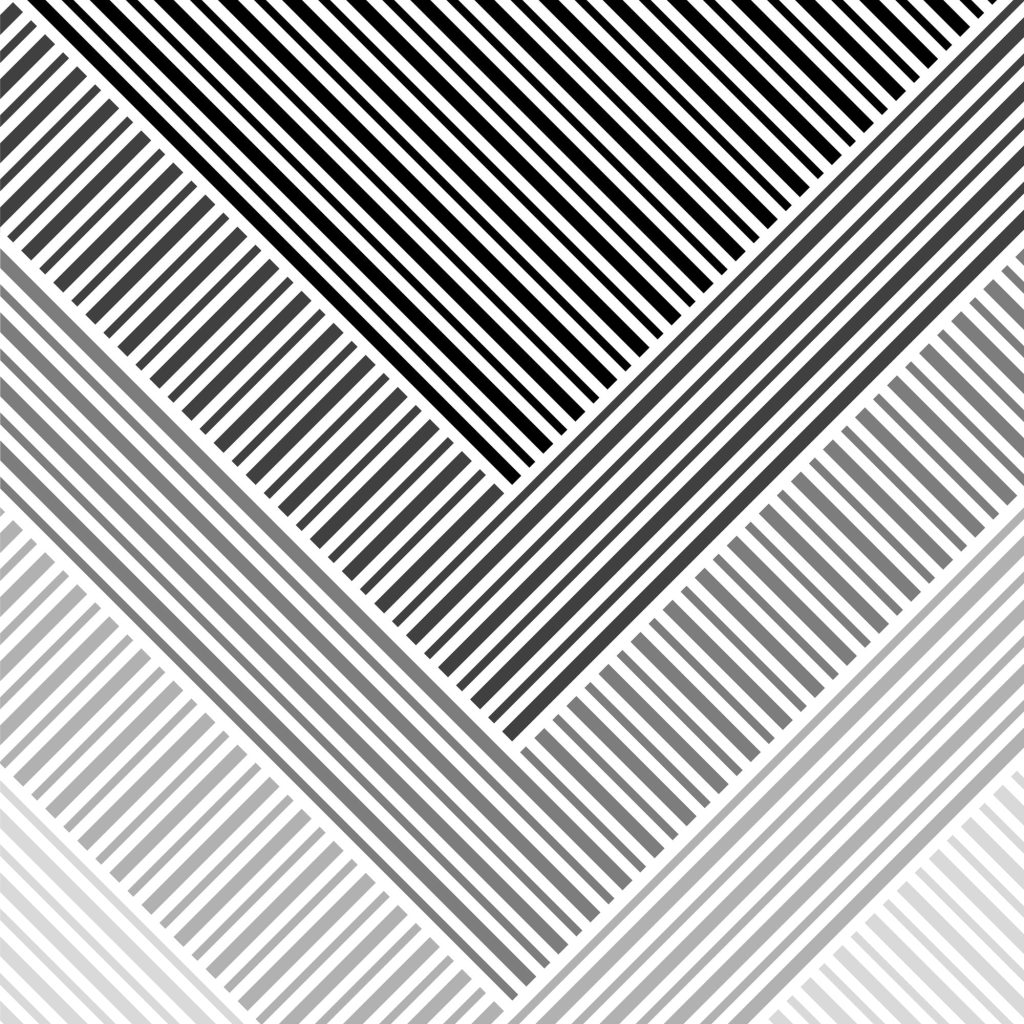
Diagonal lines jut across a design. They can be short or long but usually create a sense of movement and action. Because they slice between vertical and horizontal planes, they do an excellent job of creating a sense of movement and progress. If you’re trying to evoke movement and speed, diagonal lines can do just that.
Horizontal Lines
Horizontal lines run horizontally through the page and can be a grounding asset in a design that provides a sense of rest or calm. In a landscape image, they can show the viewer where the painting is taking place, what’s the top and what’s the bottom, because horizontal lines run parallel to the ground. While simple, they are powerful, and by using one to interrupt it, you can create a natural focal point.
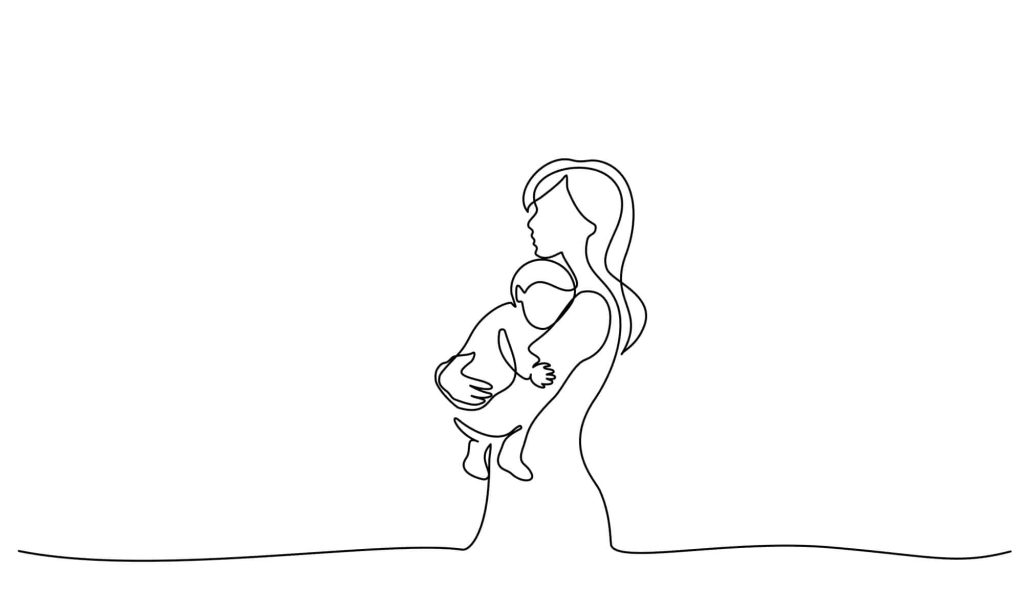
Vertical Lines
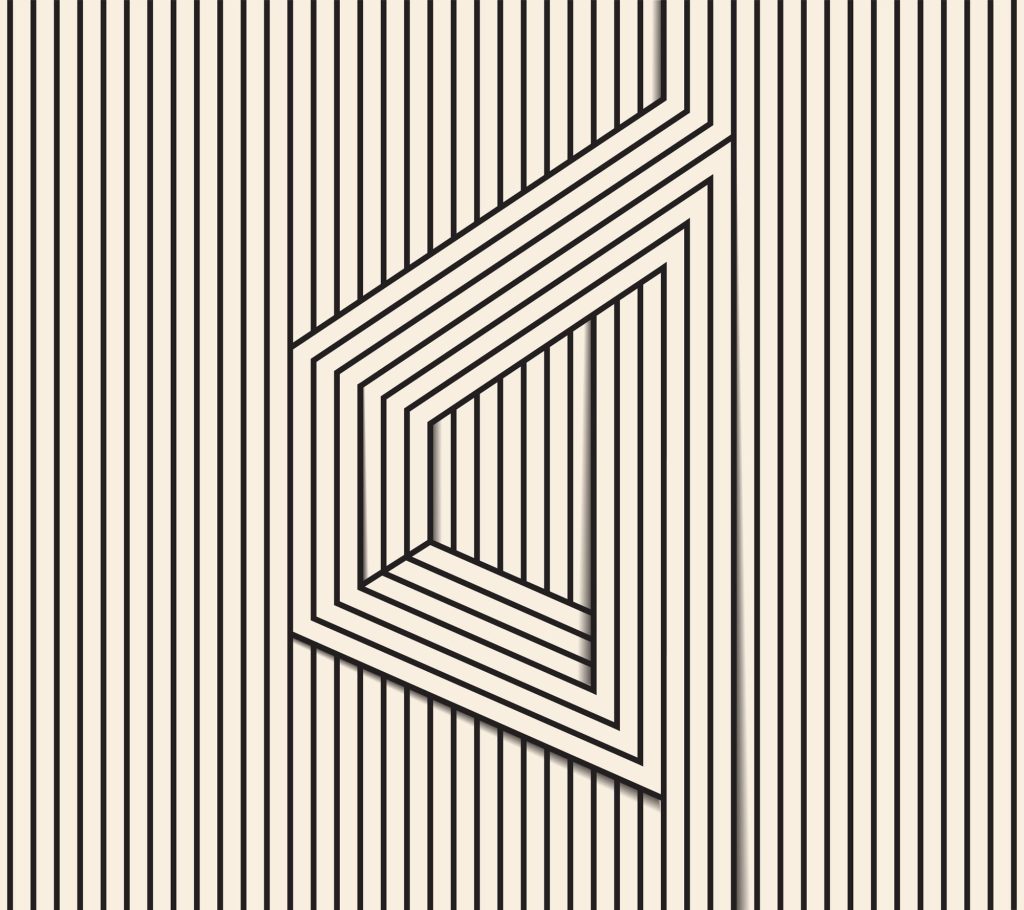
Vertical lines run straight up and down with no slant. They run perpendicular to horizontal lines and have a strong presence when used in a line art design. Vertical lines evoke a sense of power and strength as they progress up toward the sky. Often, these lines are a firm constant in a design.
Zig-Zag Lines
Zig-zag lines turn sharply, changing direction abruptly and decisively. They can evoke youthful and energetic energy while providing the viewer with a feeling of wild action and excitement. They are typically the opposite of restful.
Artists can mix up their line art types to create a wholly unique design or stick to one to create a more minimalist look. Lines are all around us, and using their engaging style can provide an entirely new style for your company or brand.
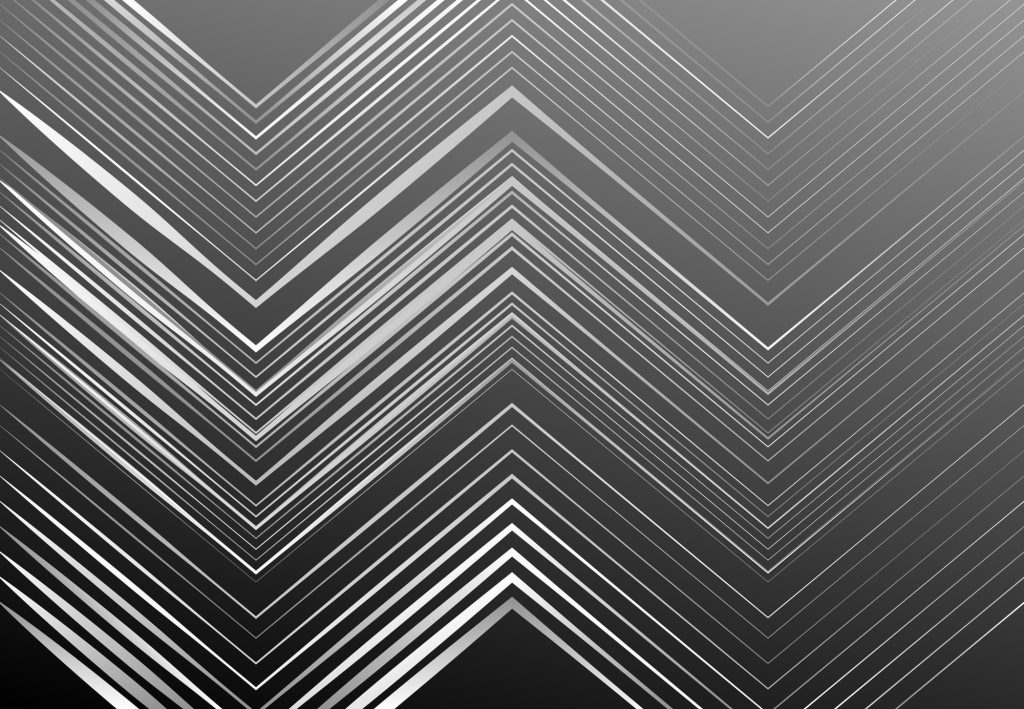
The Main Benefits Of Line Art Vectors
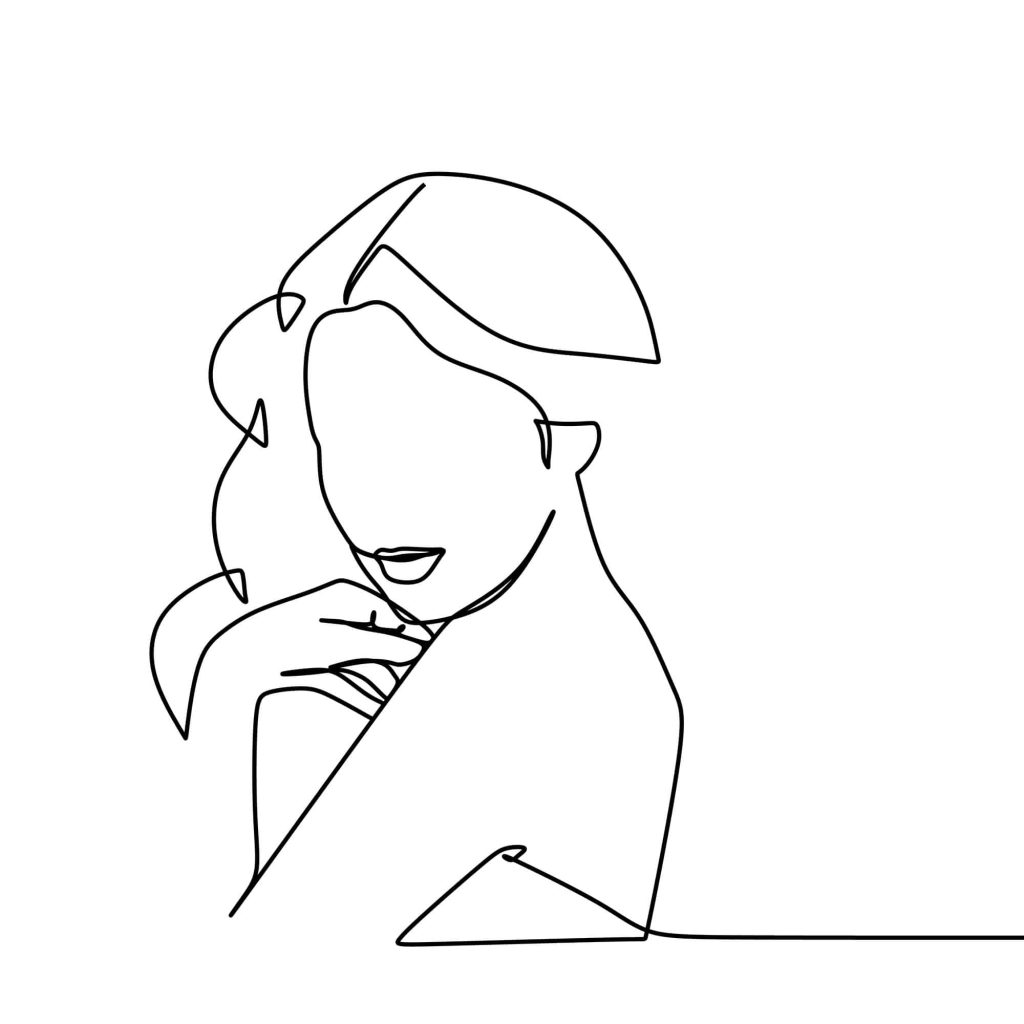
Think about the vibe and emotions you want your brand to be associated with and how line art can help you to achieve that goal. There are several advantages to getting vector custom line art for your new logo or company branding, and here is just a handful of them.
- Scalable. Line vector graphics are easily scaled. You can see practically infinite options. Best of all, you won’t suffer quality loss as the file type can adapt, which isn’t the case for other formats.
- Modifiable. Recoloring or changing object shapes to reuse or update your visuals is easy with vectors, and you can do it as many times as you want.
- Eye-catching & custom. Line art looks original and specific. The artist creates something unique just for you. So while the style is different, it could line up (pun intended) perfectly with the look your brand is trying to create. You’ll also end up with something no one has ever seen before or will in another place. It’s not stock.
- Versatile. Line art can be complex or simple. Whether your preferences for your brand, you can use the style mentioned above and others out there to create your ideal image. This versatility makes it an excellent choice for numerous industries and businesses.
How To Get Custom Vector Line Art

Not all brands have a professional artist on hand to create illustrations for them. Hiring in-house can be expensive and time-consuming to find someone who’ll work for you. If you’re in need of high-quality custom illustrations, including custom line art, as well as graphic design, video, and more, a flat-rate creative services subscription can provide all your assets for one monthly fee.
The most useful of these is the all-in-one option you’ll find at Flocksy.
Getting Amazing Custom Line Art with Flocksy
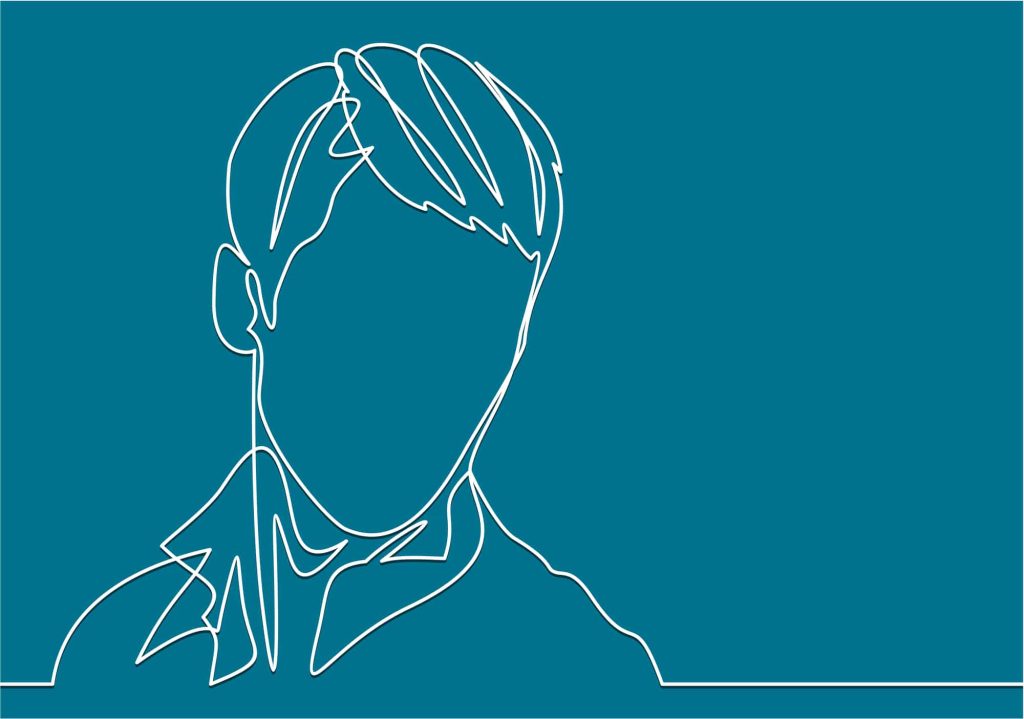
With Flocksy custom illustrations, you can start a Custom Line Art project right from the dashboard and see beautiful results in no time.
It’s easy to get started. Simply open up the “Create new project” option and choose an illustration project. From there, select “Custom Line Art” as the subcategory, and use the above styles and considerations to describe what you’d like to see from your dedicated team of artists.
You’ll want to let them know what your goal is for the piece, what you’ll be using it for, and provide any references of line art you’ve seen and enjoyed.
Soon, you’ll have your design drawn by a professional artist who can capture your vision with the highest quality and speed.
